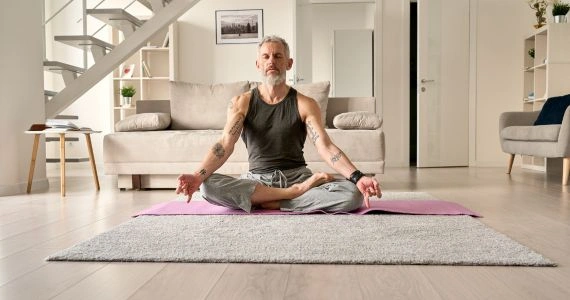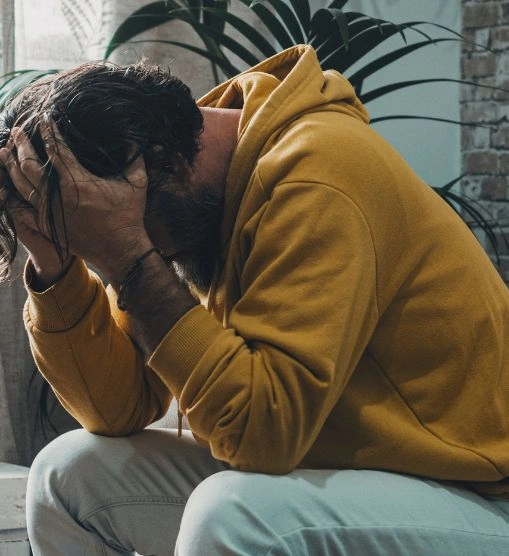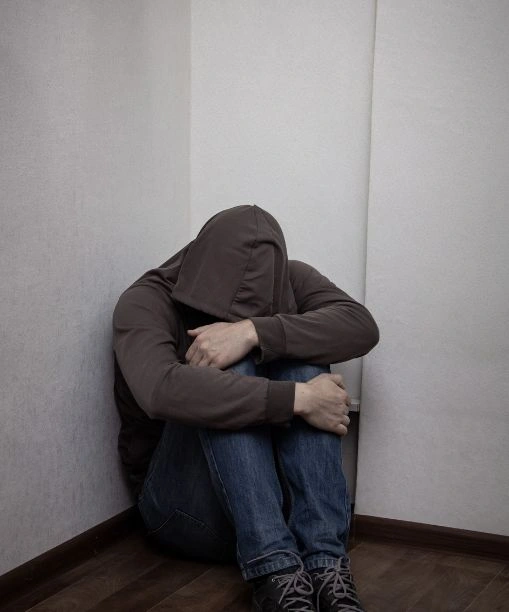Triggers for Substance Use
How to Recognize and Cope With Substance Abuse Triggers
Table of Contents
Everyone who has struggled with addiction has specific triggers for substance use. It’s these triggers that contribute to ongoing substance abuse and make it difficult for an individual to break their habits and start in a new direction.
This page will talk about some of the common triggers that people face while trying to get into addiction recovery. You may find that some of these triggers sound familiar. It’s important to identify triggers that cause problems for you so they can be addressed and overcome with treatment.
Changes Healing Center is a great place to learn how to deal with external triggers in a positive manner. If you would like to learn more about our treatment center, please take a moment to call now and talk directly with one of our admissions coordinators.
What Are Triggers for Substance Use?
A trigger can be anything that causes a person to think about using drugs or alcohol. There is no limit to what can trigger cravings, and what works as a trigger will vary from one person to the next.
There are two general categories of triggers – external triggers and internal triggers. Both can be harmful and can cause you to go back down the path of substance abuse.
External triggers are things that take place outside of you. People are a common external trigger. So too are particular places where drug or alcohol use has taken place in the past. Specific events can even be triggers for some people.
Internal triggers are mostly about emotions. When you feel stressed, for example, you might be triggered to return to substance abuse. Physical states can also be internal triggers, such as fatigue or hunger.
Trigger cravings are one of the biggest challenges that people face when trying to break an addiction. Emotional triggers and external triggers are incredibly powerful and can make it very hard to leave substance use disorder in the past.
Common Triggers
You will face many hurdles in addiction recovery. It’s difficult to break an addiction – and to stay sober – because of the powerful hold that it can have over you in many different ways.
Managing triggers is among the leading challenges in addiction treatment. To successfully achieve relapse prevention, the things that trigger cravings need to be understood, avoided, and managed effectively. Here are some of the big ones that many people face.
Stress
This is the only place we could start this list. Stressful situations are a huge trigger for many people and one of the biggest causes of relapse.
Stress that causes people to use drugs or alcohol can come in many forms. It could be financial pressures. Or, it could be work-related tension, relationship troubles, or any of a number of other factors.
Any relapse prevention plan is going to need to include a way to deal with stress without turning back to drugs or alcohol. Support groups are great for this because they offer an environment where people can share their struggles and realize they aren’t alone in feeling stressed about life.
Negative Emotions
There is a close connection between negative emotions and substance use disorder. When people feel sad, angry, frustrated, or lonely, they are more likely to make choices that they wouldn’t make otherwise.
Addiction treatment needs to confront these emotions and find better ways to deal with them. It’s not possible to eliminate negative emotions from life, so the key to relapse prevention is knowing how to manage these emotions when they do occur.
People Associated with Substance Abuse
Another common trigger for using drugs or alcohol is being around people who are still using. Maintaining sobriety often means finding a new group of friends who will support your sober life.
This isn’t a case where the plan is to learn how to cope with the trigger. In this situation, the right approach is to avoid the trigger altogether. A good relapse prevention plan will include avoiding spending time with people who continue to struggle with substance use disorder.
Environments Linked to Use
Along the same lines as people serving as addiction triggers, so too can environments do the same thing. You may feel a craving come on when you return to a place where you used to use drugs or alcohol. Finding coping strategies to deal with this trigger, along with sometimes avoiding these environments, can work to prevent relapse.
Celebrations or Major Life Events

Ironically, some of life’s greatest events can lead to some of its worst decisions. Addiction triggers can be hiding in happy events like weddings, birthday parties, and more. These are supposed to be fun occasions and some people associate fun with substance use.
But that’s a major problem for an individual in recovery. Trying to “just have one” is never a good strategy and will always lead to stronger drug or alcohol cravings moving forward. Finding a way to enjoy these events while staying far away from temptation is important.
Boredom
Perhaps the simplest trigger of all is boredom. If you don’t have anything going on in life to keep you busy and excited about the future, you may revert to substance use just for excitement and novelty.
This is one of the trickiest addiction triggers because everyone feels bored at some point. You can’t be busy or interested all the time. So, trying to stay generally busy while also having good coping mechanisms in place will help you minimize triggers related to idle hands.
Physical Discomfort
Pain works as a strong trigger for many people, as well. When you are in pain, you’ll often do just about anything to find comfort again. Sadly, that could mean turning to a past substance use disorder rather than getting professional help from a doctor.
You can’t avoid physical pain entirely in life but you can focus on your health in an effort to minimize it. Staying physically active and knowing what coping mechanisms to lean on when you do experience some physical pain will help you stay on track.
Identifying Your Personal Triggers
The list above covers many of the most common triggers that can lead people into substance use. But you probably don’t deal with all of those. For example, you might be totally fine with physical pain, but feel a strong pull toward drugs or alcohol when you are stressed.
We are all different. This is why journaling can play such an important role in recovery. Try writing down your thoughts and feelings whenever a trigger grabs your attention. What was it? Why did you feel the need to use drugs or alcohol to cope with the experience?
Journaling is a practice that builds value over time. Your first few entries might not mean too much and the exercise might feel pointless. It will snowball over time, however, and soon you’ll have a valuable resource that makes it clear what types of triggers you need to avoid or better manage.
Healthy Coping Mechanisms

It’s already been stated on this page that triggers can’t be avoided in life. They are all around you, and some are inevitably going to cross your path from day to day.
This is where coping mechanisms become so important. You need to have tools available in the recovery process to make sure triggers don’t drag you down. Below are a few of the most successful coping tools you can explore.
Cognitive Behavioral Therapy
One of the best evidence-based treatments is cognitive behavioral therapy, or CBT. This treatment is designed to help you challenge negative thought patterns and replace them with healthier ways of thinking.
Mindfulness and Meditation
Mindfulness has become extremely popular, both for those battling addiction and for the rest of the population. These techniques help you stay grounded and present, rather than letting your mind run off into the future. When used correctly, mindfulness will make it easier to interrupt the automatic response to use when you encounter a trigger.
Relapse Prevention Planning
This is a great way to deal with triggers once you know which triggers are likely to get you into trouble. You will be able to build a custom plan for each type of trigger that threatens your sober life and then that plan can be put into use when the trigger arises. Getting professional help to create these plans is a good idea.
Support Groups
It’s hard to overstate the value of support groups. Being able to talk with others about the challenges you are facing – and the triggers that you are fighting – is hugely helpful. Many people with a history of addiction continue to attend group meetings for many years to benefit from the support and to share their knowledge with the community.
Lifestyle Changes
Building up a healthy lifestyle is a powerful way to deal with triggers. A daily routine that includes proper nutrition, some exercise, and plenty of sleep will leave you feeling better about yourself and less likely to succumb to the pressures of triggers.
How Professional Treatment Can Help

You can start to work on problems with triggers on your own, but the best results usually follow from working with a team of professionals in a clinical setting.
This approach will allow you to get systematic about your treatment and how it is handled. You can identify triggers that are particularly harmful for you and develop the custom relapse prevention plan we talked about above.
Also, if a relapse does occur, you can work with your treatment team to get right back on track as quickly as possible. Nobody is perfect in the recovery journey and the most important thing is to recover, identify what went wrong, and move forward.
Start Getting Effective Addiction Treatment Today
It’s never too late to get help with an addiction. Whether you have been fighting addiction for weeks, months, or years, now is the time to turn it around.
Managing triggers is a huge part of recovery and the team here at Changes Healing Center is ready to help you do just that. We’ll start by getting to know you and your situation, and we will quickly get your detox and treatment started so progress can be made as soon as possible.
Thank you for considering our treatment center and we can’t wait to receive your call.

